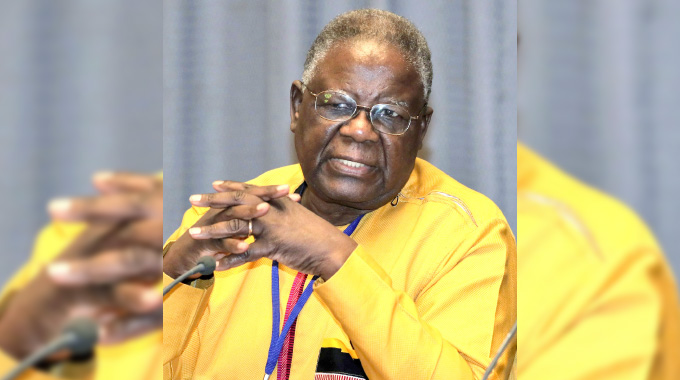EDITORIAL COMMENT: Policy on foreign currency accounts must be supported

The measures that have been in place in recent years to encourage foreign currency inflows and exports have evidently failed.
In an effort to stimulate foreign currency generation, the Government in 2016 granted an incentive of five percent and later increased to 12 percent to those who earn the money. In addition, for some time, money transfer agencies receiving remittances were giving out the money in foreign exchange plus the incentive. These and other measures were meant to stimulate activities that generate foreign exchange and encourage Zimbabweans in the diaspora to send money back home through official channels and directly to their country instead of doing so through neighbouring countries.
The initiatives have not borne the desired results as foreign currency remains in short supply while the parallel market for that money is thriving once again, reminding all of the pre-dollarisation era.
Faced with this reality, the Government had to put in place bold measures to increase foreign currency generation and remittances. Reserve Bank of Zimbabwe Governor, Dr John Mangudya, did exactly that when presenting his mid-term monetary policy statement on Monday.
He gave banks until mid this month to create separate foreign currency accounts for nostro and real time gross settlement (RTGS) accounts as part of a raft of measures to preserve value for foreign currency and to boost market confidence. Dr Mangudya also expressed the hope that measure will strengthen the multi-currency system for financial and price stability and to increase foreign currency inflows.
“In February 2018, the bank introduced a policy that requires banks to ring-fence foreign currency for foreign earners that include international organisations, diaspora remittances, free funds, export retention proceeds and loan proceeds,” he said.
“Numerous inquiries that have been received by the bank point to the fact that this policy has not been implemented by some banks on a transparent basis that promotes confidence within the economy. With immediate effect, therefore, banks are directed to effectively operationalise the ring-fencing policy on nostro foreign currency accounts by separating foreign currency accounts into categories namely nostro FCA accounts and RTGS FCA accounts.
Accordingly, all banks are directed to use the Know Your Client (KYC) principles to comply with the directive to separate the accounts without requiring their clients to complete any other documentation other than for new account holders.”
Dr Mangudya took an important decision; one which we hope and pray will encourage more companies and ordinary Zimbabweans to open and operate foreign currency accounts while simultaneously destroying the parallel market. If a company or an individual can open an FCA into which they can deposit their US$ and withdraw it at any time in US$ — not in bond notes — with no questions asked we don’t see why they would choose to stash the money under their mattress or risk losing it all by transacting on the illegal market. It is obvious that the new environment is enough encouragement to those who are holding or who generate foreign exchange to put it safely in a bank account.
Dr Mangudya also addressed a matter that has attracted much criticism to the local banking sector and even discouraged deposits — he said banks must ensure that the relevant deposits earn an interest.
Anyone who keeps their money in local banks actually incurs a charge for doing so instead of earning interest on their deposits. This is a misnomer that many elsewhere around the globe will find strange.
We hope that this misnomer will be corrected and financial institutions do as Dr Mangudya ordered on Monday.
But while the reintroduction of FCAs is critical in attracting the foreign exchange we need so much, we urge authorities to limit cash withdrawals as is standard practice worldwide. A carte blanche approach will result in the greedy among us withdrawing all the monies from banks and start selling it on the parallel market. There is no country that allows anyone to walk into a bank to withdraw $30 000. One has to explain why they need so much money in cash and in many cases such explanations are not entertained.
Yes, Zimbabwe was different a few years ago when banks allowed huge withdrawals with no questions asked. That was stopped, which is good. A reasonable limit to the amount that one can withdraw as cash will give the account holder the confidence that their money is safe and is available while making sure that the central bank does not create circumstances for the alternative market to continue thriving.
On another note, the central bank might need to keep an eye on senior officials at all banks who are always accused of using their positions to extract foreign currency from their banks and offloading it on the parallel market for huge profit. They were doing it with bond notes as well, taking piles of it from their vaults and selling it on the unwanted market. The RBZ must put its foot down on this.
These measures will assist in attracting and retaining foreign currency in the local market but probably the most sustainable way to do so it for our economy to build a strong export base. If we export more, we generate more foreign exchange, which will easily kill the rent-seeking behaviour that has enriched a few and impoverished the majority.
Equally essential is the need to build confidence in the foreign currency market. FCAs were raided a few years ago and some depositors lost their money. The market has not forgotten this sad experience.
We expect some to take their time before opening and operating FCAs given the old seizures. However, they need to understand that we have new hands on the deck now. Finance Minister, Professor Mthuli Ncube’s strong assurance elsewhere in this issue, of the sanctity of FCAs must inspire the necessary confidence.










Comments